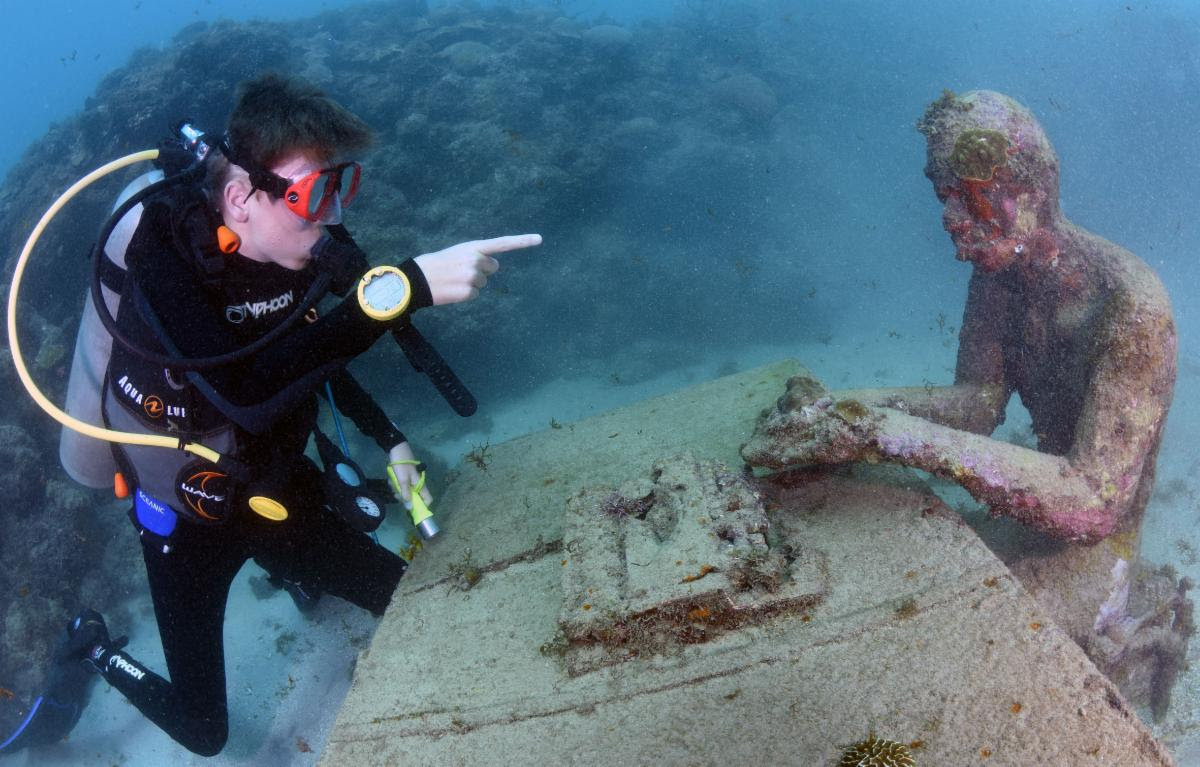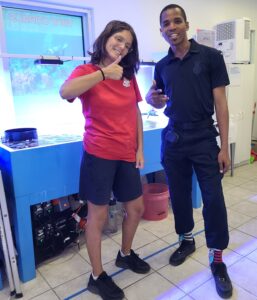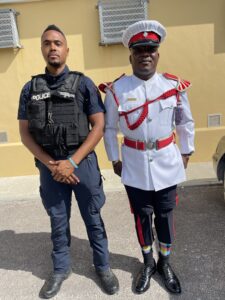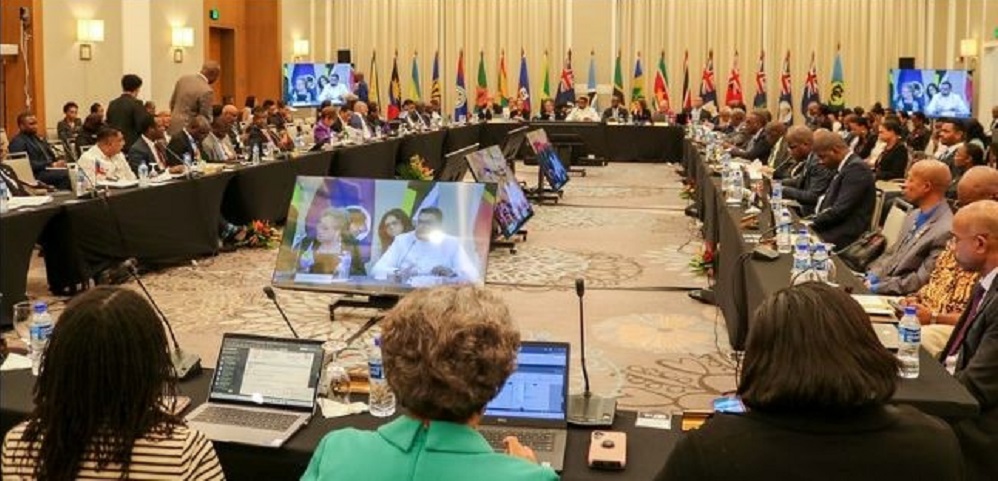WASHINGTON, D.C. — Declaring that the Government of The Bahamas is currently working on an Anti-corruption Action Plan which will build on existing initiatives, Minster of State for Legal Affairs Damian Gomez told a committee of the Organization of American States (OAS) on Tuesday, March 17, that the Bahamas Government is aware that the “attainment of values such as morality, trust and ethics in Government involves the integrated effort of the entire society and its constituent elements and institutions – legislative, executive, political, judicial, religious, and civil – all engaging with each other to ensure transparency, accountability, and good governance.”
Minister Gomez was addressing members of the full Committee of Experts of The Follow-up Mechanism for the Implementation of the Inter-American Convention Against Corruption (MESICIC) during a session held at the OAS to review and approve a report prepared by a sub-group of the Committee in the aftermath of its on-site visit to The Bahamas in September of 2014.
The Bahamas Minister for Legal Affairs expressed his “gratitude for the very kind invitation extended to me to participate in this dialectic on the fight against corruption in Caribbean societies as it relates to the implementation of the Inter-American Convention Against Corruption.”
“The Government of the Commonwealth of The Bahamas, recognising the scourge of corruption both domestic and international, is a signatory to two conventions which seek to promote and facilitate cooperation between States in order to fight against it,” Minister Gomez said. “The first being the Inter-American Convention Against Corruption and the second being the United Nations Convention Against Corruption (UNCAC) to which The Bahamas signed and ratified on 10th January, 2008.”
Noting that The Bahamas became a State Party to the Inter-American Convention Against Corruption in march, 2000, Minister Gomez added, “As you are all aware, the Convention establishes a set of preventative measures; provides for the criminalisation of certain acts of corruption, including transnational bribery and illicit enrichment, and contains provisions to strengthen cooperation on identification, tracing, freezing, seizure and forfeiture of property or proceeds obtained, derived or used in the commission of acts of corruption, among others.”
Referring to the on-site visit by the committee’s sub-group, the Minister of State for Legal Affairs said, “As a part of continuing peer review, The Bahamas hosted its scheduled On-Site visit in September 2014, following the completion of the Questionnaire for the Fourth Round Country review. During this visit, the OAS Representative and Reviewing Country were able to dialogue with representatives from the oversight bodies in The Bahamas that are relevant for preventing, detecting, punishing and eradicating corrupt acts.”
He noted that those Oversight Bodies included:
(1) Auditor General’s Department, which is responsible for financial audits of all Government Ministries, Departments, Agencies and Corporations.
(2) Public Disclosure Commission, which receives annual financial disclosure from Members of Parliament and Senior Public Officials.
(3) Office of The Attorney-General: with regard to corruption, its general responsibility is to prosecute criminal offences, including corruption related offences.
(4) The Compliance Commission, which supervises financial institutions in relation to the conduct of financial transactions to ensure compliance with provisions of the Financial Transactions Reporting Act.
(5) Financial Intelligence Unit, the agency responsible for receiving, analysing, obtaining and distributing suspicious transaction reports.
(6) The Royal Bahamas Police Force.
(7) Civil Society: Bahamas Bar Association, the professional body responsible for regulation of the legal profession and discipline of attorneys; Bahamas Institute of Chartered Accountants, the professional body responsible for the regulation and governing of the public accounting sector; Public Accounts Committee; Civil Society Organization.
“For The Bahamas, the On-Site visit formed an integral part of the process by which the implementation was analysed as our Oversight bodies were given the opportunity to refine, clarify and complement the information provided in our Questionnaire,” Minister Gomez said.
Addressing the issues of corruption and transparency, the Bahamas Minister of State for Legal Affairs said that although “corruption is a menace for both developed and developing countries alike, it is particularly relevant for small Island developing states where a lack of transparency can sometimes be systemic.”
“The Bahamas, however, armed with a charge for National development, is reviewing its Freedom of Information Bill to both ensure that transparency is inculcated in our society and to allow citizens greater access to Government information to provide them with the tools to keep public administration transparent and accountable,” Minister Gomez said. “Consistent with The Bahamas’ obligations under both the UNCAC and MESICIC Conventions, the Cabinet has mandated the establishment of an anti-corruption task force.”
He added: “The International perception of the levels of corruption in The Bahamas is found in the most recent global Corruption Perception Index (CPI), published annually by Transparency International. In its 2013 Corruption Perception Index, The Bahamas is ranked 22nd out of 177 Countries that were evaluate obtaining a score of 71/100. To put this number into perspective, this score places The Bahamas just two points behind the United States of America, and second to only Barbados in the Caribbean region.”
Minister Gomez, however, said that notwithstanding the relatively good marks The Bahamas “has garnered in the CPI, we readily confess that there is still a great deal of work to be done and much ground to cover.”
“The Bahamas does not have a comprehensive anti-corruption framework with a single watchdog agency or oversight body (i.e. an Integrity Commission or an Anti-Corruption Commission),” Minister Gomez said. “Instead, corruption has been addressed through a range of measures, including strong democratic traditions, good governance policies, legislative initiatives, vibrant political and civil institutions, a free and vigorous investigative media (including internet media) most of which is under private ownership and control, and a bevy of anti-corruption initiatives nationwide.”
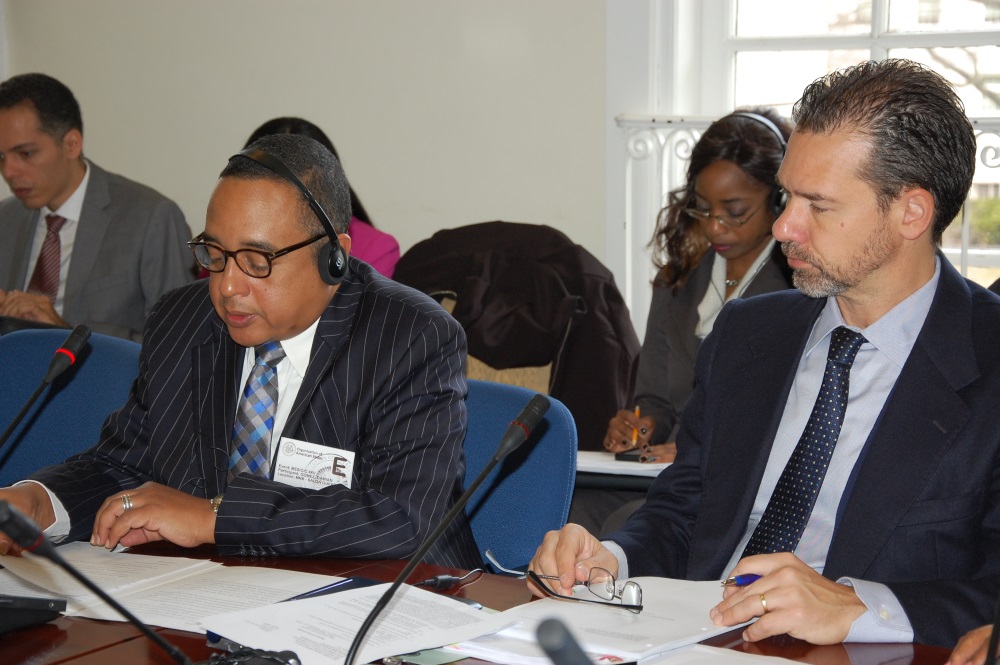

 News7 days ago
News7 days ago
 Health1 week ago
Health1 week ago
 TCI News3 days ago
TCI News3 days ago
 Caribbean News6 days ago
Caribbean News6 days ago
 Education6 days ago
Education6 days ago
 Caribbean News1 week ago
Caribbean News1 week ago
 Caribbean News6 days ago
Caribbean News6 days ago
 News1 week ago
News1 week ago
